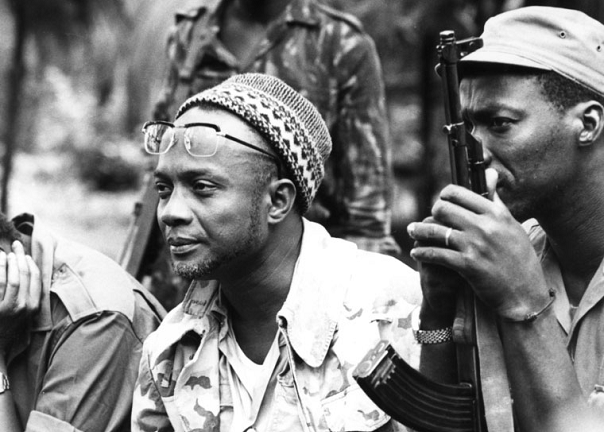
The Independence of Guinea-Bissau and Cape Verde
 Guinea-Bissau and Cape Verde were colonies of Portugal, which was determined not to let them go. The Portuguese were determined not to give up Angola, Guinea-Bissau, Cape Verde and Mozambique because the colonies were great contributors to their economic wellbeing.
Guinea-Bissau and Cape Verde were colonies of Portugal, which was determined not to let them go. The Portuguese were determined not to give up Angola, Guinea-Bissau, Cape Verde and Mozambique because the colonies were great contributors to their economic wellbeing.
The first resistance began in Cape Verde with the revolutionary, political organizer, and nationalist Amilcar Cabral. Amílcar Cabral was educated at Liceu (Secondary School) Gil Eanes in the town of Mindelo, Cape Verde, and later at the Instituto Superior de Agronomia, in Lisbon (the capital of Portugal, which was then the colonial power ruling over Guinea-Bissau and Cape Verde). While an agronomy student in Lisbon, he founded student movements dedicated to opposing the ruling dictatorship of Portugal and promoting the cause of independence for the Portuguese colonies in Africa.
He returned to Africa in the 1950s, and was instrumental in promoting the independence causes of the then Portuguese colonies. He was the founder (in 1956) of the PAIGC or Partido Africano da Independência da Guiné e Cabo Verde (Portuguese for African Party for the Independence of Guinea and Cape Verde) and one of the founders of Movimento Popular Libertação de Angola (MPLA) (later in the same year), together with Agostinho Neto, whom he met in Portugal, and other Angolan nationalists.
 In 1959, the PAIGC organized a strike by dockworkers in the port of Bissau but the police brutally crushed the strike and shot dead 50 workers. Thereafter, Amilcar decided that a full scale war was the only way to achieve independence. His goal was to establish a socialist state. As the war progressed in the rural areas, they built schools, health clinics, roads, agricultural projects and so forth in a bid to improve the lives of the rural communities.
In 1959, the PAIGC organized a strike by dockworkers in the port of Bissau but the police brutally crushed the strike and shot dead 50 workers. Thereafter, Amilcar decided that a full scale war was the only way to achieve independence. His goal was to establish a socialist state. As the war progressed in the rural areas, they built schools, health clinics, roads, agricultural projects and so forth in a bid to improve the lives of the rural communities.
By September 1973, the PAIGC had liberated most of Guinea and declared independence. However, Amilcar Cabral was assassinated by Portuguese agents on January 20, 1974 in Conakry, Guinea before the Portuguese troops finally withdrew in September. His half-brother, Luís Cabral, became the leader of the Guinea-Bissau branch of the party and would eventually become President of Guinea-Bissau.




3 Comments
by Claire Katanga
Now Trump is deporting Iraq christians & so called American eEvangelicals are silent so as not to offend their standard bearer Trump. Next week they will ask 4 prayers for persecuted christians around the world ignoring ones in their backyard.
by Samantha
This is interesting history I had never heard of
by Silima ali
Nc hstr
Comments are closed.